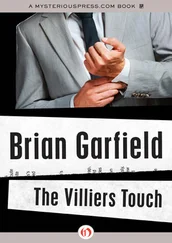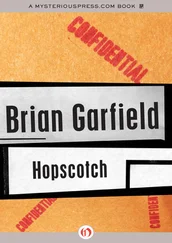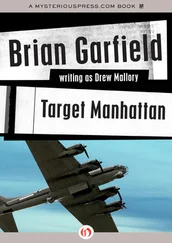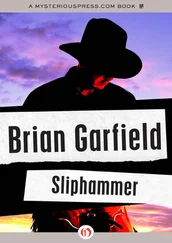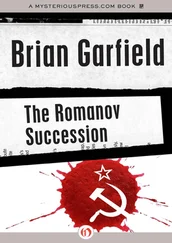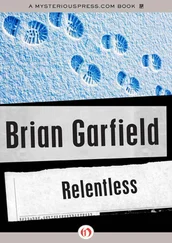Brian Garfield - Kolchak's gold
Здесь есть возможность читать онлайн «Brian Garfield - Kolchak's gold» весь текст электронной книги совершенно бесплатно (целиком полную версию без сокращений). В некоторых случаях можно слушать аудио, скачать через торрент в формате fb2 и присутствует краткое содержание. Жанр: Политический детектив, на английском языке. Описание произведения, (предисловие) а так же отзывы посетителей доступны на портале библиотеки ЛибКат.
- Название:Kolchak's gold
- Автор:
- Жанр:
- Год:неизвестен
- ISBN:нет данных
- Рейтинг книги:3 / 5. Голосов: 1
-
Избранное:Добавить в избранное
- Отзывы:
-
Ваша оценка:
- 60
- 1
- 2
- 3
- 4
- 5
Kolchak's gold: краткое содержание, описание и аннотация
Предлагаем к чтению аннотацию, описание, краткое содержание или предисловие (зависит от того, что написал сам автор книги «Kolchak's gold»). Если вы не нашли необходимую информацию о книге — напишите в комментариях, мы постараемся отыскать её.
Kolchak's gold — читать онлайн бесплатно полную книгу (весь текст) целиком
Ниже представлен текст книги, разбитый по страницам. Система сохранения места последней прочитанной страницы, позволяет с удобством читать онлайн бесплатно книгу «Kolchak's gold», без необходимости каждый раз заново искать на чём Вы остановились. Поставьте закладку, и сможете в любой момент перейти на страницу, на которой закончили чтение.
Интервал:
Закладка:
Our daughter was killed in a school bus that went over the edge into the Delaware River. She was eight years old. I suppose it was afterward that everything flew apart but the seeds had been germinating for years and there was nothing left to hold us together: the more bored we became with each other, the more jealousy ruled Eileen’s imagination. She became fixated on a wholly false idea that I had turned into a satyr; she asked constant idiotic questions in a demanding voice and finally it drove me in defiance into the very kind of meaningless affairs she dreaded. I made no great secret of them. There were three or four histrionic scenes and finally, having justified her near-paranoia, she filed for divorce. I did not contest it.
It’s distasteful to write these things but it seems necessary. When I met Nikki I had convinced myself of my own unreliability; I did not regard myself as being capable of sustaining anything more demanding than a brief affair.
Nikki had lost her husband two years ago and I assumed she too was not yet ready for anything like a serious relationship. We never mentioned marriage. It was as if the word had been erased from our lexicon. We made no plans more than a few days ahead. We delighted in each other in a broken instant of suspended time and gave no thought to what might come after. Yet it seems important to try and convey an understanding that we had no sense that it was temporary. That would have implied an anticipated ending, and we had none; we reserved nothing, withheld nothing-nothing intimate. There were things we did not discuss very much (our own backgrounds for example) but that was because those topics didn’t fit into the style we had adopted with each other, or so it seemed at the time; I had no feeling she was keeping deliberate secrets and I know I kept none.
The idyll extended into the cherry-blossom spring; we took our exercise on horseback in Rock Creek Park, we drifted down the canals, we picnicked on the Blue Ridge with my outrageous friends: uproarious games of Botticelli, insane evenings of puns and character assassination, quiet nights in bed when we only lay warm together and listened to each other’s breathing.
Early in May she told me she had to return to Tel Aviv for two weeks; something to do with the organization she worked for.
I immediately said, “I’ll go with you.”
I had written to the old man in Israel-his name was Haim Tippelskirch-and he had replied by air-letter that he would be happy to grant an interview if I should happen to visit his country. The invitation hadn’t excited me; he said he had been a subaltern in Siberia and I’d had enough experience with old men’s recollections to put very small stock in their veracity. It hardly seemed worth a long expensive trip merely to interview one man whose function in those historic events had been one of low-ranking unimportance. That his revelations would draw me into a terrible trap was something I had no way of suspecting until much later.
Nikki’s trip changed my mind about Haim Tippelskirch’s unimportance. I rationalized that there might be useful records in the Palestinian archives; I had never seen Israel; it might be worthwhile to talk to the old man after all; it was still a cool spring in Washington, cloudy all the time it seemed, and I looked forward to a blaze of desert sunshine; I had not been away in months; and so on. The truth was I wouldn’t have gone without Nikki.
3
The old man lived in a modern block of flats in Tel Aviv. I hadn’t expected such Scandinavian architecture or such crowds along the commercial thoroughfares; somehow I’d created a picture of Israeli austerity and was amazed by the hell-bent rush for consumer goods I saw on all sides. Certainly on the streets of the city there was no sense of fear; you didn’t feel an Arab air force lurking beyond the horizon, you didn’t suspect every alley of harboring an Al Fatah fanatic. It was almost as if all that must have been a fiction of the Western press. At the time of course I was unaware of what went on behind closed doors, except insofar as the government-censored newspapers covered it. The Jewish Defense League, which had terrorized New York so recently, was regarded as a pathetic joke; the press was filled with political cartoons ridiculing not only pompous Arab windbags but also the American Zionists and to some extent Israel’s own politicians.
It was quite hot and the proximity of the Mediterranean only made it seem even drier than it was-like the parched feeling you get when you come in sight of a man-made lake in the middle of the Arizona desert.
Haim Tippelskirch had a tiny apartment on the fourth floor overlooking the playground of a modern school. He and Nikki were very glad to see each other; they embraced and their laughter mingled.
She had told me he had a great deal of vigor for a man in his seventies but to me he appeared alarmingly frail at that first meeting. He was very tall but thin as a sapling, with oversized grey slacks cinched up around his middle chest; he leaned on a polished cane. His wispy hair was in pewter-grey tufts and his cadaverous face appeared to have few teeth.
Yet there was dignified authority in the poise of his head, the angle of his physical attitude when he greeted me. With Nikki he had spoken Hebrew; we now had a brief go-round of tongues-he had no English-and we settled on German, with which we were both comfortable. He spoke with a good High German accent and did not need to hesitate in search of the right word.
Later after that first meeting Nikki told me how hard it had been for her to conceal her alarm: he had wasted badly since she had last seen him six months earlier. We had no way of knowing it but he was already quite ill with the cancer that would soon take his life. I don’t know if he had the diagnosis yet; he knew he was ill.
She was remarkably good. She gave no sign. She teased him girlishly and the old man gave as good as he took. He was her surrogate uncle, they told me; he had known her mother well. They were not related but they might as well have been.
He didn’t seem a religious man; there were no artifacts in the apartment. The furnishings were inexpensive and Scandinavian in style but hardly spartan; he had arranged the small flat pleasantly and the sun streamed in with clean strong light. One entire long wall of the sitting room was given over to bookcases and the volumes on the shelves were in several languages; I saw none in English but apparently he read French, German, Italian and two or three others besides Hebrew and Russian. There were the classics of Russian and Continental literature and philosophy; there was also a substantial library of history and military studies (including three of mine in translation); he had Clausewitz and an extensive shelf of Nietzsche and Goethe.
The two of them made tea and Nikki brought it into the sitting room on a silver tray. It looked quite valuable. I remember the old man catching my eye and smiling. “This is one reason I am no longer in Russia. I fear I lack proletarian sympathies. I enjoy as much comfort and luxury as I can afford-and I’ve never had anything against privilege.”
Nikki had to leave. We both saw her to the door. “Take good care of him,” she said to the old man; we kissed and she went.
He waved me to a chair and went to the bookcase where he took down a book. It was my first, the one on the Civil War in Russia. He laid it on top of the case; stopped to glance out the window at the sky and then pivoted on his cane to face me. “Of course I have read this.”
“A very youthful effort,” I said.
“It’s quite well done. But it’s seen from a great distance. You must have done it all from libraries.”
“Libraries and official archives,” I said. “I didn’t know of any other sources then. It takes time to learn one’s way around, in my craft.”
Читать дальшеИнтервал:
Закладка:
Похожие книги на «Kolchak's gold»
Представляем Вашему вниманию похожие книги на «Kolchak's gold» списком для выбора. Мы отобрали схожую по названию и смыслу литературу в надежде предоставить читателям больше вариантов отыскать новые, интересные, ещё непрочитанные произведения.
Обсуждение, отзывы о книге «Kolchak's gold» и просто собственные мнения читателей. Оставьте ваши комментарии, напишите, что Вы думаете о произведении, его смысле или главных героях. Укажите что конкретно понравилось, а что нет, и почему Вы так считаете.

